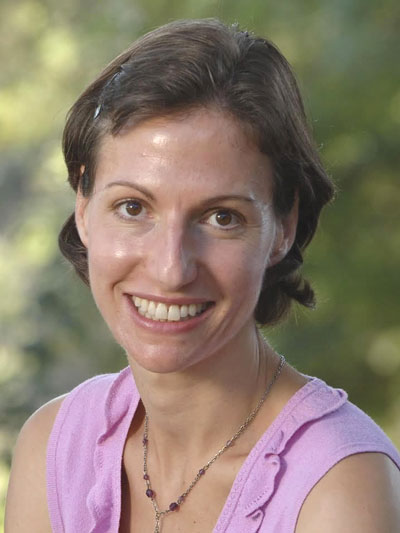Training Grants Encourage Integration of Clinical Science and Practice
Clinical students often report that they thrive on their work as scientists and researchers, and they also report loving their clinical work — but sometimes they view these two aspects of their training as very separate enterprises. To help address this science-practice gap, the Society for a Science of Clinical Psychology (SSCP) awarded its first annual Clinical Scientist Training Initiative grants in 2011.
The grants were awarded to training programs at the predoctoral, internship, or postdoctoral levels so that they could either launch new projects or support ongoing initiatives that effectively integrate science and practice in their training program.
Each of the three 2011 winners received up to $1,500 to support their project. The winners represented a diverse group of programs in terms of training setting, type of program, geographic location, and proposed projects.
Using computers to effectively track clinical outcomes could create a wealth of information for researchers and clinicians. In their winning proposal, Clinical Science in Practice: Creating a Sustainable Research Database, the Department of Psychology at George Mason University (GMU) described a database they would develop to monitor clinical outcomes. The database will also serve as a research database for the GMU Center for Psychological

Bethany A. Teachman
Services, a clinic that offers evidence-based treatments to the Northern Virginia community. Robyn Mehlenbeck, lead author of the proposal and Director of the Center for Psychological Services, said, “This award has allowed us to devote graduate student time to setting up our clinical research database at our main training clinic where we employ evidence-based interventions. Each client now has a standardized packet of questionnaires to complete at intake and at discharge from care. Our next step is to get the database set up so that we can address research questions in the clinic as well as track treatment outcomes.”
New technology isn’t the only method for enhancing science in clinical training programs. The Tampa Veterans Affairs Hospital’s winning initiative, Provision of Empirically Valid Clinical Supervision, was unique because of its focus on improving clinical supervision. Director of Clinical Training Glenn Curtiss and his colleagues, proposed to develop and evaluate a region-wide training program for competency-based supervision of clinical psychology trainees. They proposed a “Train-the-Trainer” model that involved hosting a full-day workshop, led by an expert in empirically based supervision, to train their entire region of psychology supervisors in scientifically grounded supervision practices. Supervision is an often neglected aspect of clinical training, and Curtiss has reported that they have already implemented the workshop with considerable success.
“The James A. Haley Veterans Hospital Psychology Training Programs presented a workshop attended by four VA hospital and three private sector training program psychologists to learn about competency-based clinical supervision from Dr. Carol Falender,” said Curtiss. “Each training program identified trainers to teach and implement this supervision model at their institution as a best-practice model.”
The final winning program, Integrating the Evidence-Based Practice Process Into the Training of Clinical Psychologists, came from the Department of Psychiatry and Behavioral Sciences at the Northwestern University Feinberg School of Medicine. Jason Washburn, lead author of the initiative and Director of Education and Clinical Training, noted that the program recently transitioned to an emphasis on evidence-based practice, so they
requested funds to develop the infrastructure for students tocollect outcome data by purchasing tablet computers that patients could use in their clinic waiting room. Washburn said the funds will also be used to educate students in the measurement technology needed to assess clinical outcomes.
Overall, SSCP was thrilled with the creativity and diversity of ideas proposed for this new grant program.
“This is a prime time for innovation in clinical science training,” said APS Fellow Varda Shoham, President of SSCP. “Despite impressive advances in developing empirically supported interventions, we now know that these treatments too often do not reach patients in community settings who need them most.
Increasingly, faculty in clinical psychology programs recognize that we have a crucial role in bridging the science-practice gap.” Shoham says that SSCP hopes to help bring more of these ideas to fruition.
“The enthusiastic response to this award announcement is so encouraging,” she said. “Our only regret is that we do not have more to give.”





Comments
APS is to be congratulated for this important contribution.The variety of programs described to connect science with clinical practice strengthens this effort.Regarding the one day training of the trainers workshop, I would be pleasantly surprised if that will work, since evidence based treatment requires mor time and training than one day.I say this based on my experience over the years of training students in clinical and research areas. I also know that one day workshops at scientific meetings that attempt to update psychologists in a particular methodology are not very successful, although they do introduce the attendees to the basics of the methodology or the new technique that is being introduced.Nevertheless I am in favor of this idea,and perhaps there are ways to succeed in a one day training program. It would be worthwhile to pilot different presentation styles for these workshops to determine the most effective format for teaching these skills.
APS regularly opens certain online articles for discussion on our website. Effective February 2021, you must be a logged-in APS member to post comments. By posting a comment, you agree to our Community Guidelines and the display of your profile information, including your name and affiliation. Any opinions, findings, conclusions, or recommendations present in article comments are those of the writers and do not necessarily reflect the views of APS or the article’s author. For more information, please see our Community Guidelines.
Please login with your APS account to comment.